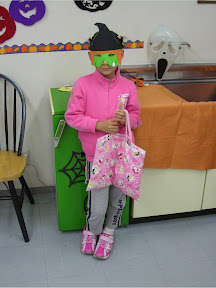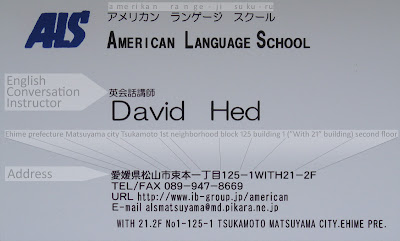I had a kid visit class today that really scared me. Not in a “trenchcoat mafia” kind of way, but in a “holy crap, your existence shakes the core of what I know about how to do my job” kind of way.
For the first time since I moved to Japan, I met a bilingual Japanese kid.
He’s six years old, and his English speaking ability is arguably better than my office manager’s (listening unarguably so). He goes to a special school that’s taught all in English, a school which Ms. Semba says “only very rich families can pay for.” He and his classmates are only allowed to speak English while at school, so speaking English is (literally) second nature to him. Neither of his parents speak it fluently, though his mom chopped together a “thank you” when I complimented her son’s language skills, so it’s apparently all learned at school. He says his class is very small, and that makes sense from a practical perspective; if you need to police young’uns’ predilections to speak the same language at school as they do at home, it’s far easier to do if you can count them on your fingers. I’m seriously impressed at the level of dedication his parents have to teaching him speak English well.
But here’s the thing- if he’s going to be one of my students, what the heck am I going to do with him? The difficulty levels of the books I currently use progress in maturity and English ability in accordance with the average ESL learner, which means that the books I have at his English level are aimed at young adults. While he was in the office today, he spent some time in my classroom with three other kids his age who all barely know the alphabet. I talked to him like I would any American child, and he seemed to have the vocabulary of the average American first grader, which brings me back to my point.
I’m scared of having him as a student because it means I’ll have to do some serious growing as a teacher. I’ve become comfortable with my role as an ESL teacher, and now I’m going to have to be a “regular” English teacher to two kids (he’s bringing a friend from school) who already speak English.
I guess this means I’m going to be expanding my repertoire, which is good. It’ll involve more work than I’m doing right now, because I can’t imagine Ms. Semba will spring for any more books, especially for an unusual situation like this. That means I’m going to have to come up with a new curriculum, but I’m not sure where to start. American Language School is an “eikaiwa,” literally “English conversation” school, and the point of all our lessons is English communication, but I can’t just sit and have a chat with a couple of six-year olds.
I think I have a lot of reading to do. If you’re a teacher with experience teaching language skills to children, do you have any specific suggestions where I should start?

